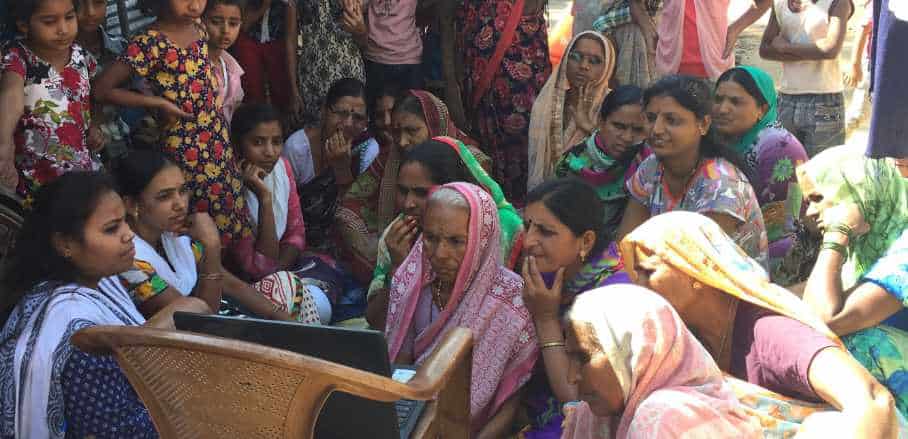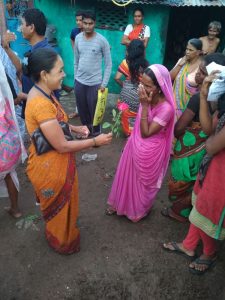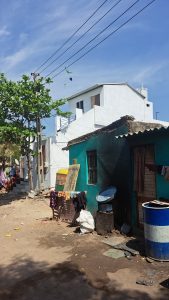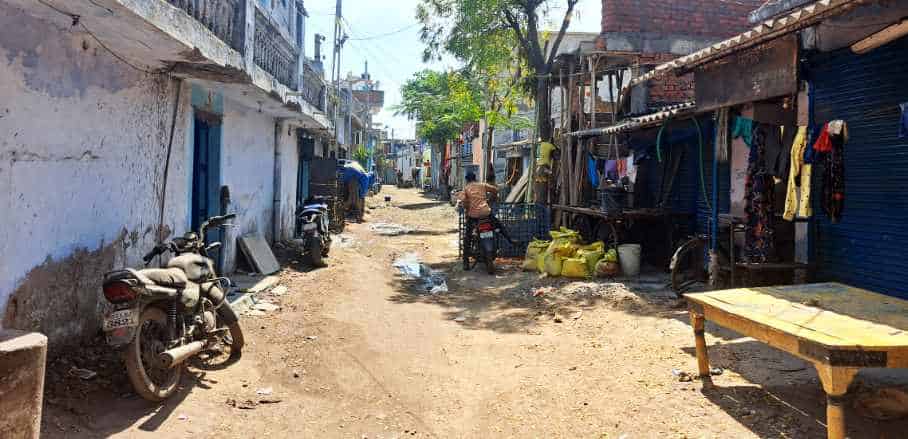Women’s Collective Power: Driving Responsible Urban Development
India is rapidly urbanising. However, the disparities that affect the poor and marginalised are glaring. Bijal and Chirayu Brahmbhatt discuss aspects of addressing these inequalities through women-led approaches towards a better future for all.
In 2020, nine Community Action Groups (CAG) within a slum settlement in the city of Ahmedabad wanted a bus service for their communities. A CAG is a group of 10 to 12 women, who are trained as leaders to represent the slum and interface with the government to take charge of community and city-level improvement processes. These groups were trained by the non-governmental organisation Mahila Housing Trust (MHT), which aims to improve urban built environments in poor communities through collective action.
The CAGs conducted surveys to map out public spaces where a bus station could be built. Being poor and without a voice, their need for such a basic amenity was overlooked by the municipal government for several years. With the technical knowledge gained from MHT, they worked out a solution and presented it to the municipality. They pursued their demand for a bus stop with appropriate data. As a result, the municipality provided the bus service.
Intersecting Challenges for Women Working in Informality
Slum communities having poor access to public transport is just one example of urban inequality. These are the result of the rapid pace of urbanisation in India. In the last decade alone, urbanisation grew by four per cent resulting in 475 million people residing in cities as of 2021. According to the Ministry of Housing and Urban Affairs (MoHUA), urban inequalities are caused due to a plethora of factors, such as skewed funding due to the favouring of rural programmes, informality, and poverty in urban areas as well as gender and income-related gaps.

Women watch videos to understand the hazards of open defecation. © MHT Amelner
Most people coming to urban areas are migrants, who settle in the far-flung areas of the city. They lack basic housing facilities (informal settlements), skills, and education. Such socio-economic conditions force them to work in the informal sector, characterised by poorly paid wages, irregular incomes, and no form of social security to tide over difficult situations. These problems get even more compounded for women, who represent the bottom of the social pyramid. 90 per cent of women, who work, do jobs in the informal sector.
This poses numerous challenges for them. For instance, they suffer from income discrimination by receiving way lower wages compared to men performing the same kind of work. Moreover, 39 per cent of the women working in the informal sector are home-based workers. They use their house as a workplace and thus, the house essentially becomes a productive asset for them. However, poor housing conditions such as lack of electricity, drainage, and roads, among others, hamper their productivity. This phenomenon only increased due to the dual stresses of excessive heat and flooding, making their incomes even more vulnerable to the added factor of climate change.
MHT’s Approach
Urban inequalities get amplified due to poverty, informality including informal settlements, and lack of representation of the poor to voice their concerns. To address these issues, MHT works with collectives of women to empower them and provide them with the necessary skills for building their technical and social capital to get local governments to respond to their needs for basic services.

Women receive flowers during the sensitisation drive for open defecation by MHT staff and CAG’s. © MHT Amelner
For instance, the government in Amalner, Maharashtra, tried to tackle the issue of Open Defecation (OD) by providing subsidies to construct household toilets under the Clean India Mission. Due to insufficiency and bureaucratic hurdles only a few households received the funding. As a result, the problem of OD persisted. In addition, the municipality resorted to fines and punishments to discourage people from practising OD.
A Glance Into Community Development and Housing Financing
Seeing no material change, the government of Maharashtra invited MHT to achieve OD Free status in Amalner, which means communities are using sanitation facilities instead of defecating in the open. Women leaders from slums – Community Action Groups – then worked tirelessly alongside MHT to identify households that did not have toilets, reasons for not constructing, removing any hurdles for availing government subsidies, and providing access to microcredits where required. Thanks to the efforts of these women from the community, almost all the households gained access to toilets and, after continued efforts by the CAGs over 2 to 3 years, OD was eradicated.
Since the urban poor live in informal settlements with informal income, access to formal housing is almost non-existent. To address this concern, MHT has set up poor women-led credit cooperatives, which offer loans to improve housing to members with informal tenure. A credit cooperative is a solidarity-based financial institution. Women members pool their contributions, which enables members to access savings and credit services, particularly for improving their housing. MHT builds up both the technical and financial capacities of women so that operations can run smoothly.
A New House for Dipikaben Malik
Dipikaben Malik, for instance, has been living in informal housing conditions for more than 15 years. The housing lacks basic facilities such as roads, drainage, and legal grid connection. Being a home-based worker, who earns by selling local snacks and sewing clothes, her housing conditions were highly unfavourable to support her livelihood. The roof of her house was made of asbestos and was in a dilapidated condition with several cracks. During the monsoons, not only did the roof leak but also water entered her home due to severe waterlogging. It destroyed her belongings, including the material for conducting her small business. She had to stop working during the monsoon season. Summer was no different, her house became too hot for her work, thus affecting her productivity and income generation.

Dipikaben’s new house (in white) vs the old house © MHT Ahmedabad
MHT supported her to construct a new house, which did not only meet her aspirations but was climate-resilient as well – the roofing is coated in solar-reflective paint, it has better ventilation for thermal comfort, an elevated plinth, and much-needed storage space for her working materials. This was a house that met her aspirations and ensured a dignified living. Even better: The credit cooperative financed her expenses and the repayment schedule does not pose a burden for her.
Recognising the Power of Women’s Collectives
Community-led development initiatives have proven time and again that women’s empowerment, sustainable urban development, and building climate resilience in low-income communities in cities are not mutually exclusive goals. It is imperative to recognise the power of women collectives that have intimate knowledge of their situation and are well-tuned to the needs of the households and the communities. Additionally, developing socio-technical capacities allows women to exercise their agency in solving their day-to-day challenges.
However, most of the time women’s issues are limited to gender-based violence, livelihoods, and child and maternal health. While they are important issues to be addressed, they mask other factors that need equal attention: participation in governance, climate resilience, and financial inclusion, among others. The Constitution of India mandates that communities participate in local governance, however, there are no spaces created for them. MHT and the credit cooperatives play a significant role in helping women occupy such spaces.
- From Risk Aversion to Climate Resilience: MHT’s Climate Risk Insurance Game - 10. October 2023
